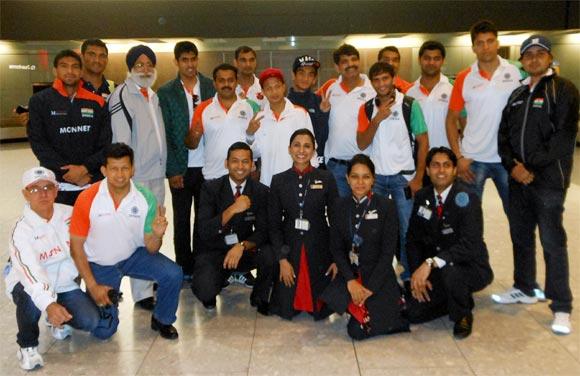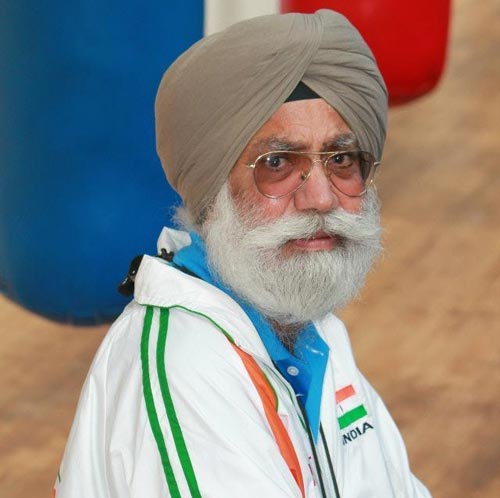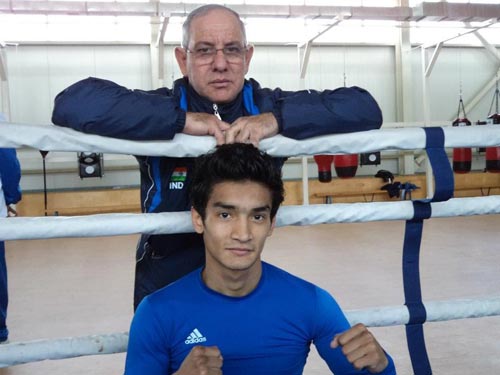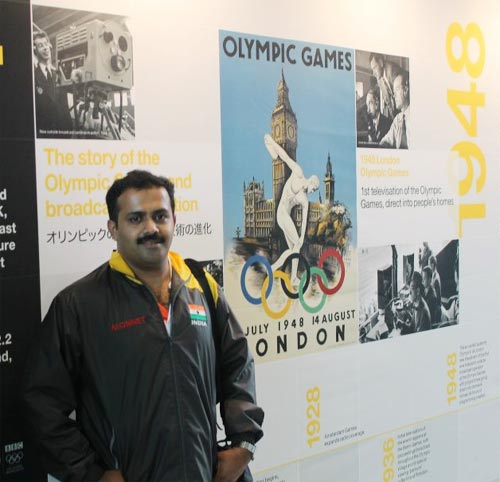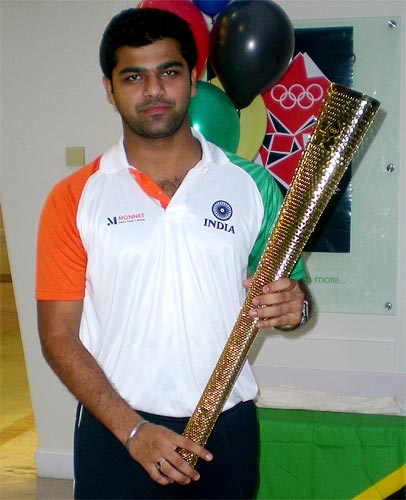 | « Back to article | Print this article |
The support staff has also played a key role in the success
One moment changed the face of Indian boxing forever. Vijender Singh's bronze medal at the 2008 Olympic Games in Beijing made him the darling of the nation and brought the sport into the limelight.
Four years down the line, Indian pugilists are regarded among the best in the business; now the sport's aficionados are expecting a few medals from them at the London Games.
A lot of hard-work and commitment has gone into taking Indian boxing where it is at the moment. From a nation of no-hopers to one of the best in the world, the sport has seen a remarkable transformation over the last couple of years.
While the boxers have done their bit by winning laurels at international competitions and securing as many as seven spots at the Olympics, the support staff has also played a key role in the success.
Working tirelessly behind the scenes they have ensured that the pugilists only have to worry about their performances in the ring. But while it is the coaches that act as fatherly figures by guiding the boxers at every possible stage, it is the physiotherapists, masseurs and doctors that provide motherly affection.
Ask any of them from the Olympics-bound contingent and they will tell you they feel at home even away, be it at a training camp at the National Institute of Sports in Patiala or competitions around the world. That could be the main reason why they are heading into the Olympics competition in the best of shape, without any niggles or injuries despite a gruelling training schedule over the last couple of months.
The guiding force of Indian boxing
Head coach Gurbax Singh Sandhu is the boxers' guiding force for close to two decades now. The 59-year-old took over as senior national coach in 1993 and is amizing at how the sport has grown since.
The London Games will be his last tournament as coach and he is hoping to sign off with a gold medal from the mega-event.
"I am anyways retiring next year as an [National Institute of Sports] NIS coach, because I would have touched 60. But even otherwise I don't wish to continue beyond London. Hopefully, I will do it with a better coloured medal," he declared ahead of the team's departure for London, obviously alluding to something better than Vijender Singh bronze medal from the Beijing Games.
"I have enjoyed my career immensely and I am a very satisfied man," he added.
Fernandez has played a major role in the rise of Indian boxing
Cuba's Blas Iglesias Fernandez, who has been working as associate coach since 1990, has also played a major role in the rise of Indian boxing with his commitment. He even missed his daughter Sochye's wedding last year because he was busy with a training camp to prepare the boxers for the Olympic qualifiers -- the World Championships in Azerbaijan.
Jaidev Bisht, C A Kuttappa and Ramanand are the other assistant coaches who have also worked tirelessly over the years in grooming the country's young boxers and will accompany the team in London.
'Their fitness and health is in top shape'
And one cannot forget the role of the two physiotherapists -- Hari Shankar Varma and Vaibhav Patil -- who have worked non-stop in the last few months to keep the boxers in the best of shape. Their work includes gauging individual injuries, preparing a detailed plan for rehabilitation and suggesting exercises to strengthen the injured areas.
Boxing is a physically demanding sport and injuries are very common unlike other sports, so the role of the physios is very important.
Varma has been physio of the Indian boxing team for the last six years and no one understands the pugilists more than him. He completed a bachelor's degree in physiotherapy from Dr. MV College of Physiotherapy and specializes in pediatric neurology and sports physiotherapy.
"Today the crop of Indian boxers is truly world class and their fitness and health is in top shape," he says.
'We are taking care of the athletes like your own children'
Vaibhav Patil, who is associated with the Mittal Champions Trust, started with football players. It was his association with MCT that brought him to the boxing camp in Patiala, and since then he has not looked back.
"As sports physiotherapists, we need to be aware of every athlete's moves, continuously monitor their training, assessing them at regular intervals for injuries, managing their rehab post-injuries, educating athletes time and again about ways to prevent injuries. So it's nothing else but taking care of the athletes like your own children," says Vaibhav.
If Vijender and company manage to win a few medals at London, as everyone expects them to, then you know who also deserves credit. It is not only the man in the roped square, but a few dedicated behind him all the way.
